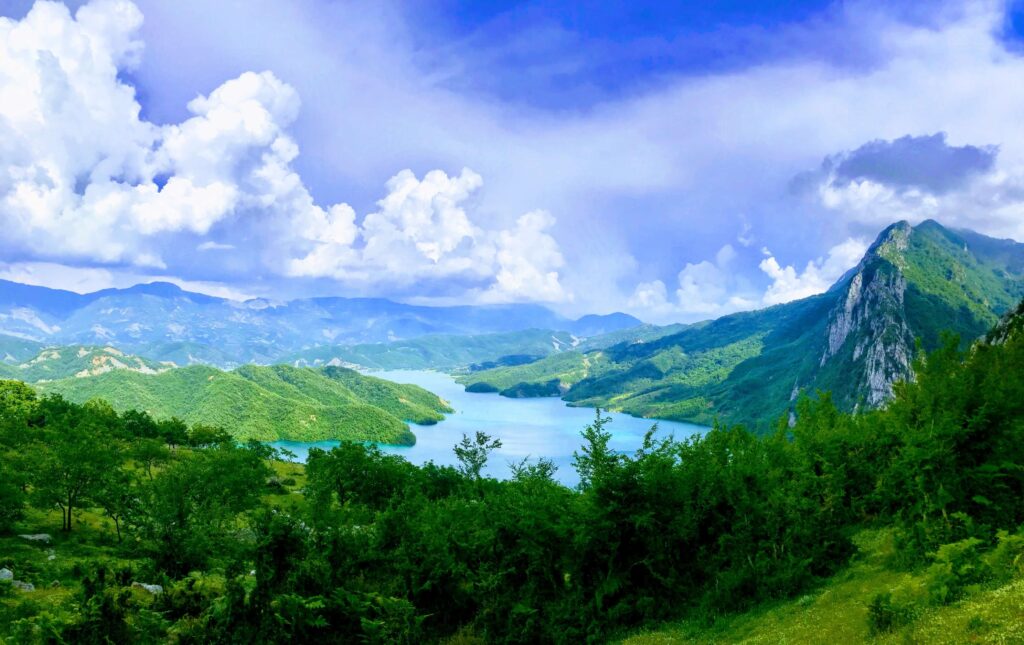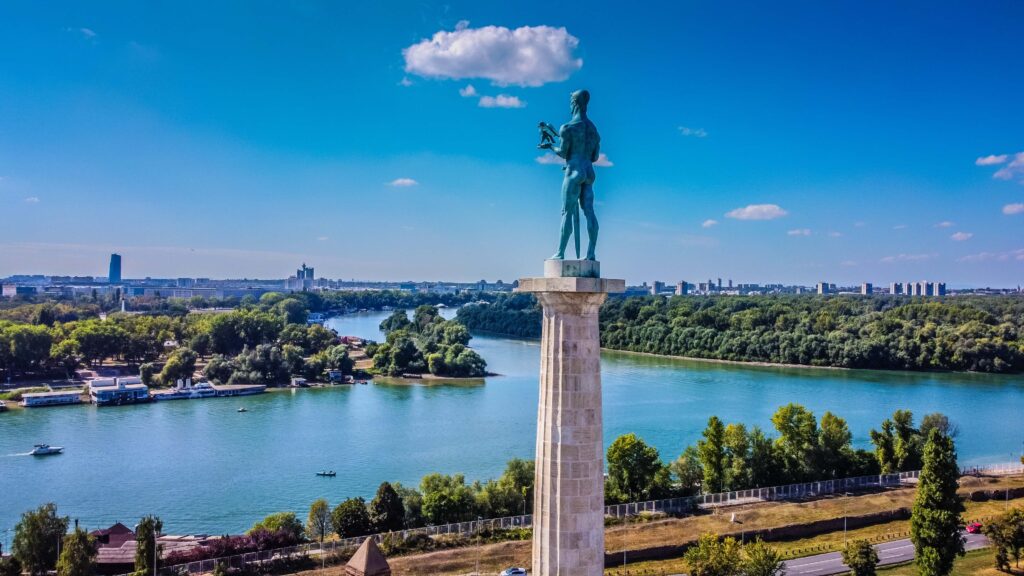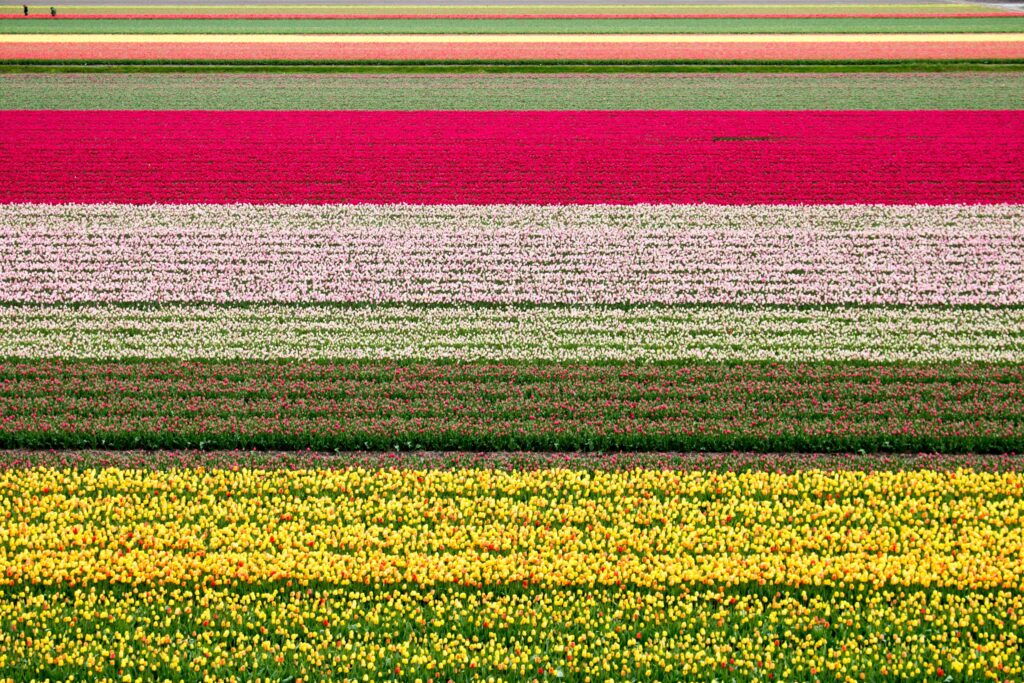Albania, a hidden gem nestled in the heart of the Balkans, has emerged as an enticing travel destination for adventurers seeking off-the-beaten-path experiences. With its stunning natural landscapes, rich history, and warm hospitality, Albania offers a unique blend of cultural heritage and outdoor adventures. From picturesque beaches along the Adriatic and Ionian Sea to majestic mountains and ancient ruins, this country has something to offer everyone.
- Why visit Albania? Top reasons to explore this hidden gem
- The best time to visit Albania for optimal weather and experiences
- Planning your trip: Essential travel tips and considerations
- Exploring the must-see destinations in Albania
- Albania's rich history and cultural heritage: Discovering the ancient ruins and historical sites
- Natural wonders of Albania: From stunning beaches to majestic mountains
- Unique experiences in Albania: Immersing yourself in local traditions and activities
- Must-try Albanian cuisine
- Budget-friendly tips for travelling in Albania
- Transportation options in Albania
- Accommodation options in Albania
- Safety and practical information
- Final thoughts
Why visit Albania? Top reasons to explore this hidden gem

Albania’s allure lies in its untouched beauty and authenticity. Unlike some of its neighbouring countries, Albania has managed to preserve its natural landscapes and cultural heritage, making it an ideal destination for travellers looking for a genuine experience.
The country boasts an impressive array of attractions, ranging from pristine beaches and rugged mountains to vibrant cities and historical sites. Whether you are an outdoor enthusiast, a history buff, or a cultural explorer, Albania offers a plethora of unique experiences.
One of the main draws of Albania is its stunning coastline, with crystal-clear waters and hidden coves waiting to be discovered. From the lively beaches of Durrës and Vlorë to the secluded gems of the Albanian Riviera, such as Saranda and Ksamil, there is a beach for every taste.
Moreover, the Albanian Alps offer breathtaking landscapes for hiking and exploring, with the picturesque town of Theth and the Valbona Valley amongst the highlights. Albania’s diverse geography also includes the beautiful Ohrid Lake, shared with North Macedonia, and the dramatic Osumi Canyons, perfect for adrenaline-filled activities like rafting.
The best time to visit Albania for optimal weather and experiences

Choosing the right time to visit Albania is crucial for making the most of your trip. The country experiences a Mediterranean climate, with hot and dry summers and mild winters.
Peak tourist season in Albania falls between June and August when the weather is warm and the beaches are at their best. However, if you prefer to avoid the crowds, consider visiting in spring (April to May) or autumn (September to October). The temperatures are milder, and the landscapes are adorned with blooming flowers or vibrant autumn colours.
For outdoor enthusiasts and hikers, the shoulder seasons offer ideal conditions for exploring Albania’s mountains and national parks. It’s worth noting that the Albanian Alps are particularly popular among hikers during the summer months. Therefore, if you’re planning to trek in this region, it’s advisable to book in advance and prepare accordingly.
Planning your trip: Essential travel tips and considerations

Before embarking on your Albanian adventure, it’s important to plan your trip carefully and consider a few essential travel tips. Firstly, check if you need a visa to enter Albania, depending on your nationality. Most visitors are granted a 90-day visa-free stay, but it’s always best to verify the requirements beforehand. Additionally, ensure that your passport is valid for at least six months beyond your planned departure date.
When it comes to currency, the official currency in Albania is the Albanian Lek (ALL). While credit cards are widely accepted in larger cities and tourist areas, it’s advisable to carry some cash, especially in more remote areas where card payment may not be available.
Exploring the must-see destinations in Albania

Albania is brimming with captivating destinations that are worth exploring. One of the must-see cities is Tirana, the vibrant capital, where you can immerse yourself in the country’s rich history and contemporary culture. Visit the National History Museum, explore the colourful streets of the Blloku neighborhood, and relax in Skanderbeg Square, the heart of the city.
For history enthusiasts, a visit to the ancient city of Butrint is a must. This UNESCO World Heritage Site showcases the remains of a Greco-Roman settlement, including a stunning amphitheatre and well-preserved mosaics.
Another historical gem is Berat, known as the “City of a Thousand Windows” due to its Ottoman-era houses. Here, you can wander through the narrow cobbled streets of the old town, visit the medieval castle, and admire the beautiful frescoes of the Onufri Museum.
Of course, no trip to Albania would be complete without exploring the Albanian Riviera. This breathtaking stretch of coastline offers a mix of lively beach towns and secluded gems. Sarandë, with its azure waters and lively promenade, is a popular choice among tourists. Alternatively, head to the charming village of Jala, where you can relax on pristine beaches and enjoy fresh seafood.
Albania’s rich history and cultural heritage: Discovering the ancient ruins and historical sites

Albania’s history dates back thousands of years, leaving a rich legacy of ancient ruins and historical sites. One of the most prominent archaeological sites is Apollonia, an ancient Greek city founded in the 6th century BCE. Explore the ruins of the ancient agora, the marble theatre, and the Odeon, and imagine life in this once-thriving city.
Rozafa Castle, pictured above, is a historic fortress dating back thousands of years situated near the city of Shkodër in north-western Albania. This magnificent castle is perched on a rocky hill and is surrounded by the Buna and Drin rivers, offering breathtaking views of the surrounding landscape. Throughout history the castle has witnessed several sieges, and is now part of the Archaeological Park of Albania.
One of the most intriguing aspects of the castle is its association with a famous legend about human sacrifice and immurement for its construction. The legend tells the story of three brothers who made a pact with an old man to bury one of their wives alive for the castle’s foundations to remain sturdy. While two brothers broke their promise, the youngest brother’s wife accepted her fate, and the castle remains standing today.
Another significant historical site is Gjirokastër, a UNESCO World Heritage Site known for its well-preserved Ottoman architecture. Visit Gjirokastër Castle, which houses the Museum of Weapons, and wander through the narrow streets of the old town, admiring the traditional stone houses.
For a glimpse into Albania’s communist past, a visit to Bunk’Art in Tirana is a must. This museum is housed in a former nuclear bunker and offers a fascinating insight into the country’s totalitarian regime. Explore the underground tunnels, exhibition halls, and learn about the hardships endured by the Albanian people during this period.
Natural wonders of Albania: From stunning beaches to majestic mountains

Albania’s diverse landscapes are a nature lover’s paradise. The country is blessed with beautiful beaches, hidden coves, and crystal-clear waters along its coastline.
The Albanian Riviera, stretching from Vlorë to Sarandë, offers some of the most picturesque beaches in the Mediterranean. Relax on the golden sands of Drymades Beach, explore the secluded Gjipe Beach, or witness the unique phenomenon of the “Blue Eye” spring near Sarandë.
Inland, the Albanian Alps provide stunning mountain vistas and unparalleled opportunities for hiking and adventure. The Valbona Valley National Park, located in the Accursed Mountains, offers breathtaking trails that lead to pristine alpine lakes and traditional mountain villages.
The Theth National Park is another gem, boasting dramatic landscapes, waterfalls, and the renowned “Lock-in Tower,” a symbol of Kanun, the traditional Albanian code of honour.
Albania is actually home to several national parks, incuding Butrint National Park and Divjaka-Karavasta National Park, where you can observe a rich variety of flora and fauna. Birdwatchers will be delighted by the chance to spot rare species in the Karavasta Lagoon, while nature enthusiasts can explore the dense forests and wetlands teeming with life.
Unique experiences in Albania: Immersing yourself in local traditions and activities

One of the most rewarding aspects of visiting Albania is the opportunity to immerse yourself in the local traditions and activities. Albanians are known for their warm hospitality and welcoming nature, making it easy to connect with the locals and learn about their customs.
To truly experience Albanian culture, consider participating in traditional festivals and events. The Tirana International Film Festival, held annually in November, showcases the best of Albanian and international cinema and offers a glimpse into the country’s vibrant arts scene. Meanwhile, the Kruja National Folklore Festival, held in the historic town of Kruja, celebrates Albanian folk traditions through music, dance, and traditional costumes.
For adventure seekers, Albania offers a range of thrilling activities. Explore the underground world of the “Pirro Cave,” one of the largest caves in the Balkans, or go paragliding in the picturesque town of Himara, enjoying panoramic views of the coastline.
If you’re a water sports enthusiast, head to Lake Ohrid. Here you can try kayaking, paddleboarding, or even scuba diving in the clear waters. Another great option is to go diving in the Ionian resort of Sarandë.
Must-try Albanian cuisine

No visit to Albania would be complete without indulging in its diverse and flavourful cuisine. Albanian cuisine is a fusion of Mediterranean and Balkan flavours, with an emphasis on fresh ingredients and hearty dishes. Make sure to try the national dish, Tavë Kosi, a delicious combination of lamb, yogurt, and eggs. You should also sample the famous Byrek, a savoury pastry filled with cheese, spinach, or meat.
Seafood lovers will delight in the fresh catch of the day, prepared in traditional Albanian style. Don’t miss the opportunity to taste Fërgesë, a traditional dish made with peppers, tomatoes, and cottage cheese, or the mouth-watering Baklava, a sweet pastry layered with honey and nuts.
To truly immerse yourself in the Albanian culinary scene, consider taking a cooking class or visiting local markets, where you can learn about traditional ingredients and cooking techniques. Albanian cuisine is a true reflection of the country’s cultural heritage, and exploring its flavours is an essential part of any visit to Albania.
Budget-friendly tips for travelling in Albania

One of the common misconceptions about Albania is that it is an expensive destination. However, the reality is quite the opposite. Albania offers excellent value for money, making it an ideal choice for budget travellers. Accommodation, transportation, and food prices are generally lower compared to other European destinations, allowing you to make the most of your travel budget.
To save money while travelling in Albania, consider staying in guesthouses or budget hotels, which offer comfortable accommodation at affordable prices. Public transportation, such as buses and minibuses, is a cost-effective way to get around the country, with well-connected routes between major cities and tourist destinations.
When it comes to dining, opt for local eateries and street food stalls to experience authentic Albanian cuisine at affordable prices. These establishments offer generous portions and delicious dishes without breaking the bank. Additionally, make use of the country’s abundant natural beauty by exploring national parks and hiking trails, which are often free or require a minimal entrance fee.
Transportation options in Albania

Albania has a well-developed transportation network, making it easy to navigate the country and explore its diverse regions. The most common mode of transportation for both locals and tourists is the bus. Buses are reliable, affordable, and connect major cities and towns throughout Albania. They are also a convenient option for travelling to neighbouring countries, such as Greece, Montenegro, and North Macedonia.
For shorter distances within cities, taxis and ride-sharing apps are widely available. It’s advisable to negotiate the fare in advance or ensure the meter is used to avoid overcharging. Alternatively, renting a car can provide flexibility and convenience, especially if you plan to explore remote areas or venture off the beaten path. Consider Discover Cars or Rentalcars for options to suit your needs.
For those seeking a more adventurous mode of transportation, consider hopping on one of the vintage communist-era buses known as “furgons.” These minibuses, although often crowded, provide a unique cultural experience and are a popular choice among locals for short-distance travel.
Boats are a good option for travelling along the riviera, with tours available in popular tourist areas such as Sarandë. You can also take boat trips to explore the rivers and lakes in one of Albania’s national parks. Alternatively, end your trip to Albania by sailing north to to Montenegro and Croatia, south to Greece or west to Italy.
Accommodation options in Albania

Albania offers a wide range of accommodation options to suit every traveller’s needs and budget. From luxurious beachfront resorts to cosy guesthouses in the mountains, there is something for everyone.
If you’re looking for a more immersive experience, consider staying in traditional guesthouses or agritourism farms. These accommodations offer a glimpse into the local way of life and provide an opportunity to connect with Albanian culture. Many guesthouses also offer homemade meals prepared with locally sourced ingredients, ensuring a truly authentic culinary experience.
For those seeking more upscale accommodations, Albania boasts a growing number of luxury hotels and resorts. From stylish boutique hotels in historic towns to modern beachfront resorts with all-inclusive options, you can find a range of high-quality options.
Safety and practical information

Albania is generally a safe country to visit, with low crime rates and friendly locals. However, as with any travel destination, it’s important to take basic safety precautions and remain vigilant. Avoid displaying valuable items in crowded areas and keep an eye on your belongings at all times.
It’s advisable to have travel insurance that covers medical expenses, as well as any potential adventure activities you may engage in. While Albania has a reliable healthcare system, it’s always wise to be prepared for unforeseen circumstances.
When it comes to communication, English is widely spoken in tourist areas and larger cities. However, learning a few basic phrases in Albanian can go a long way, especially in rural areas. It helps in connecting with locals, as well as showing respect for their culture.
If you require emergency assistance in Albania, dial 112 to contact emergency services.
Final thoughts
Albania, with its breathtaking landscapes, rich history, and warm hospitality, offers a truly unforgettable travel experience. Whether you’re seeking pristine beaches, majestic mountains, or a glimpse into the country’s ancient past, Albania has it all. With its unique blend of natural beauty and authentic experiences, this Balkan nation is waiting to be explored.
CTA: Pack your bags, plan your itinerary, and get ready to create memories that will last a lifetime. Head to Skyscanner for the latest flight deals to Albania, where adventure awaits!



